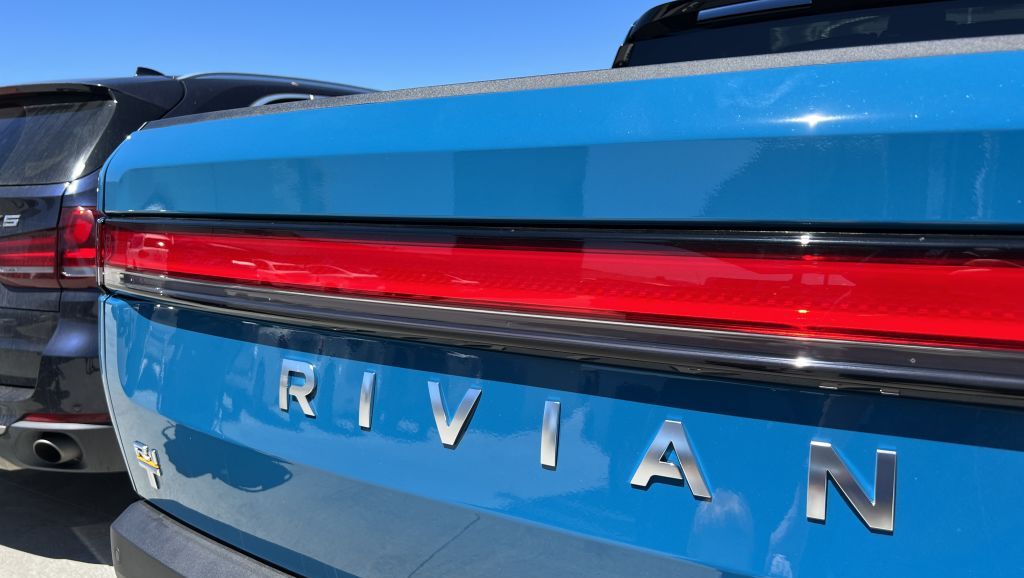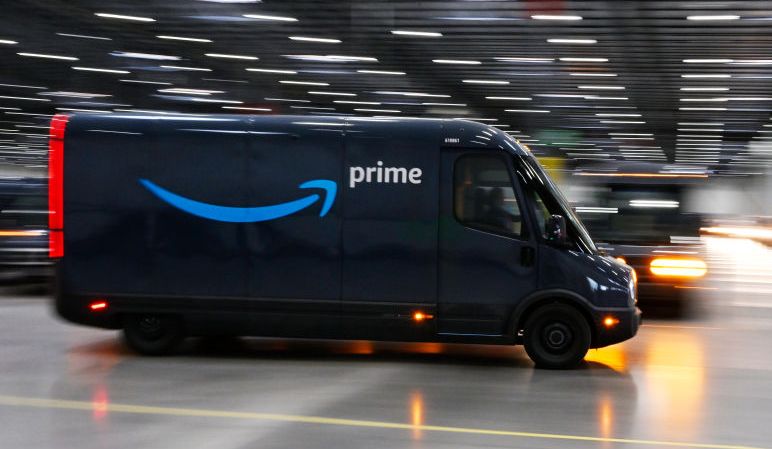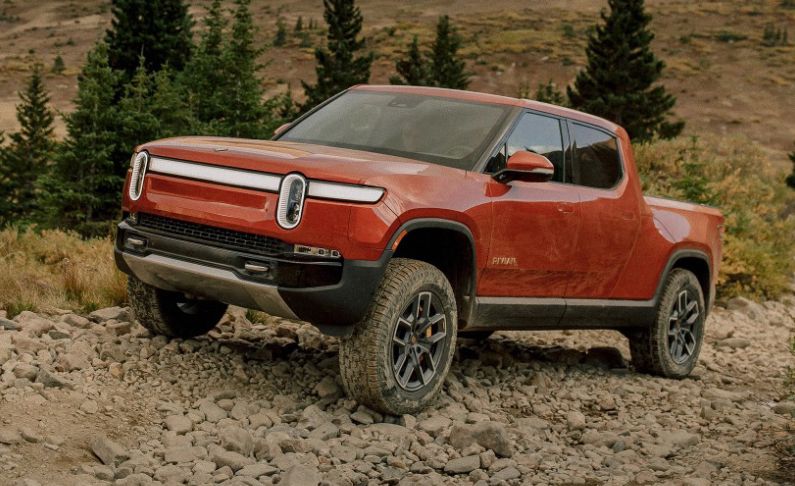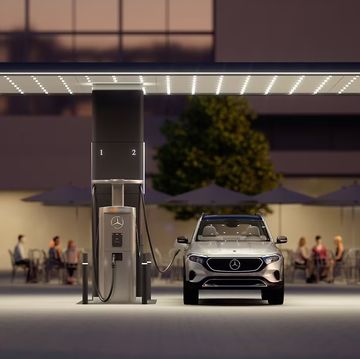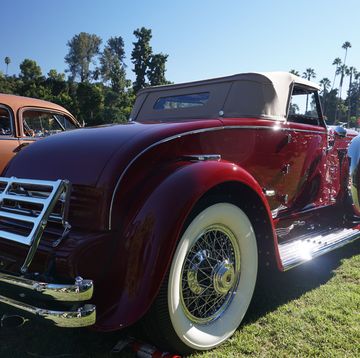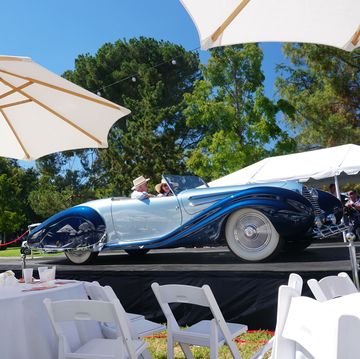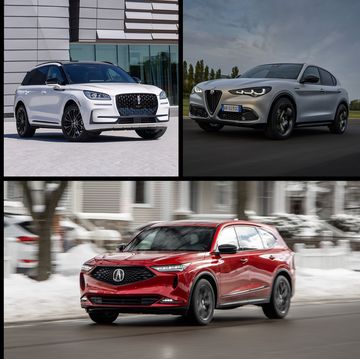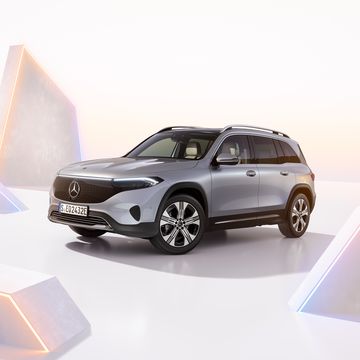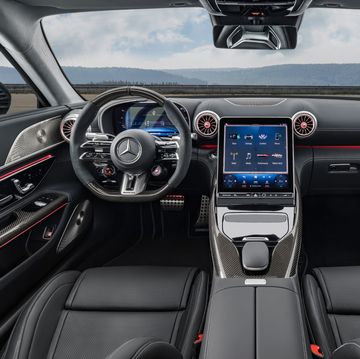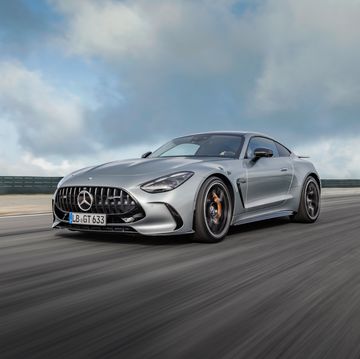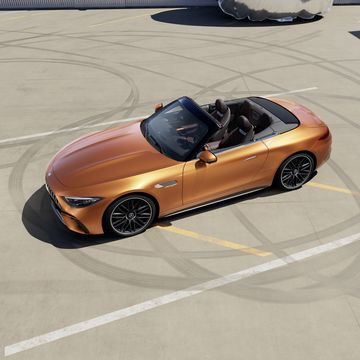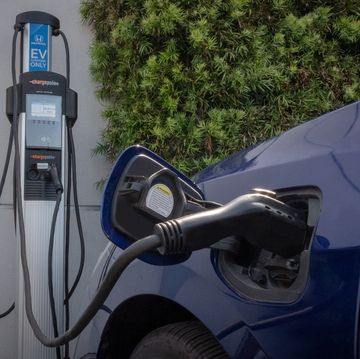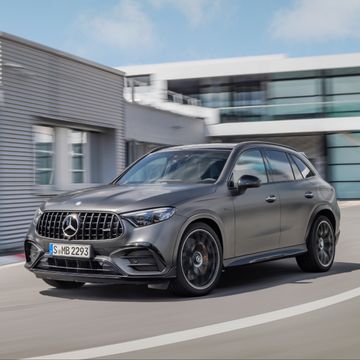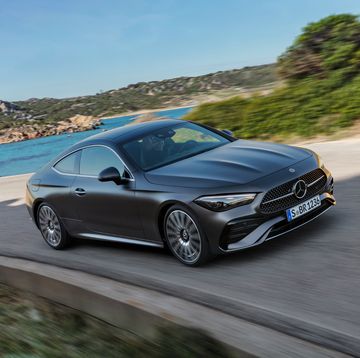- Rivian has paused its commercial electric van manufacturing venture with Mercedes-Benz, citing a continued focus on its consumer orders and on positive cash flow in the US.
- The production facility in Jawor, Poland, will continue to be used by Mercedes, with the legacy manufacturer stating the pause won't affect its own EV production plans.
- Third-quarter production numbers showed Rivian delivered over 14,000 models, meaning the EV startup is hoping to have produced an additional 10,000 or so vehicles before year's end to meet its 25,000-unit goal.
Mercedes-Benz and Rivian made a joint announcement back in September that the two manufacturers had signed a deal to create electric vans together. The plan was to share a production facility in Eastern Europe and hone the manufacturing prowess of two very different companies in the name of efficient production and reduced expenses. This announcement, paired with the introduction of Mercedes' new all-electric VAN.EA van architecture, was a hit with commercial clients, adventure-ready consumers, and investors alike.
Now, that plan is on pause, according to a statement from Rivian Chief Financial Officer Claire McDonough. The electric truck and SUV startup is choosing to focus on existing projects, in part due to Rivian's "current and anticipated economic conditions," the statement reads. That means Rivian will no longer plan on producing its light commercial vans out of the Jawor, Poland, plant that the joint venture had settled on.
Mercedes executives say this change will not affect its current EV production plans, according to Reuters. Given the industrious size and economic scale of Mercedes-Benz, this claim is readily believable—Mercedes says it plans to produce EVs in the space at the plant in Poland that was intended to be shared with Rivian. Despite this, the seemingly abrupt decision by Rivian is telling, especially given the juxtaposition that characterizes significant production cuts against increasingly high demand.
As the market for commercial EVs grows, Rivian's EDV van platform faces additional competition from legacy manufacturers like Ford and General Motors, with the company desperately trying to keep up with its 25,000-unit production goal for 2022. That overall production number is half of what the company originally planned to make in 2022, though its new goal seems on track with over 14,000 vehicles produced as of October. With a claimed 114,000 orders for its consumer models and a contract with Amazon for 100,000 EDV vans, the company is battling to retain waiting customers while trying to ramp up production.
This is why halting its first European factory may have been prudent, given the significant increases in production numbers that its Normal, Illinois, plant has seen each quarter. Why invest copious amounts of money into a far-away European facility when domestic production is finally hitting its stride? Additionally, the cost involved in staffing the factory and exporting its models would be lofty, given that models like the R1T aren't officially nor dimensionally fit for European sales.
Ultimately, the driving factor in this decision is becoming cash flow positive in the US, the company says. Rivian posted a $1.6 billion loss in the third quarter as a result of high material costs, a loss it hopes to recoup as double-shift production smooths out and deliveries continue.
Even so, Securities and Exchange Commission filings from November show Rivian is worried about attracting new customers, given the somewhat high price and long wait times for delivery. With operating costs rising to $857 million last quarter and steady losses of billions of dollars each quarter, Rivian is banking on a continued flow of affluent EV adventurers and a successful production push to keep it afloat, at least for now.
Have you experienced wait times for factory-ordered vehicles? Please share your experiences in the comments below.
A New York transplant hailing from the Pacific Northwest, Emmet White has a passion for anything that goes: cars, bicycles, planes, and motorcycles. After learning to ride at 17, Emmet worked in the motorcycle industry before joining Autoweek in 2022. The woes of alternate side parking have kept his fleet moderate, with a 2014 Volkswagen Jetta GLI and a 2003 Honda Nighthawk 750 street parked in his South Brooklyn community.
